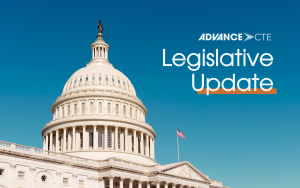
This week, President Donald Trump was sworn in as the 47th President of the United States. The Trump administration has continued to take shape this week as the Senate considers and advances several key nominees as lawmakers begin to determine a pathway forward for a large legislative package via the budget reconciliation process.
President Trump Starts with a Surge of Executive Orders
On Monday, January 20, President Donald J. Trump was officially sworn in as the 47th President of the United States. For the first time since 1985, the Presidential inauguration took place inside due to frigid temperatures in Washington, D.C.. Following the formal inauguration, President Trump began signing over 20 executive orders and rescinding 78 existing executive orders from previous presidential administrations – more than any previous U.S. President on their first day. These executive actions are wide-ranging and focus on many themes he campaigned on including rolling back Diversity, Equity, and Inclusion (DEI) efforts, changes to federal government workforce policies, energy, and immigration. Advance CTE continues to monitor the effects of these day-one executive actions taken by the new administration and will communicate potential impacts they may have on the CTE community as they become available.
Budget Reconciliation and FY25 Continue to Take Shape
This week, Congressional Republicans continued internal deliberations and discussions regarding a forthcoming legislative package intended to address a number of President Trump’s priorities related to tax, energy, immigration, trade, and more. As shared previously, Republicans intend to advance this package via the Congressional budget reconciliation process, which allows certain policies to be passed by a simple majority, thus circumventing a likely Democratic filibuster in the Senate. These discussions are still ongoing and could include a wide range of potential legislative proposals to offset some of the potential costs associated with this effort.
In addition to these efforts, Congressional appropriations leaders are reportedly negotiating an agreement on new topline figures for the federal fiscal year 2025 (FY25) funding bill– a critical first step before lawmakers can negotiate a full-year FY25 package for individual programs like the Carl D. Perkins Career and Technical Education Act (Perkins V). As a reminder, current federal funding was recently extended through March 14, 2025, via a short-term extension of federal funding, known as a continuing resolution (CR), which Congress enacted shortly before the holiday season.
As both of these efforts continue to advance this year, Advance CTE will continue to advocate for strengthened investments in CTE and seek other opportunities to increase access and support for CTE programming and pathways.
New ED Nominees Announced
As Advance CTE shared previously, then President-elect Trump nominated former Small Business Administration leader Linda McMahon to serve as Secretary for the U.S. Department of Education late last year. Earlier this week, President Trump formally nominated former Tennessee Commissioner of Education, Penny Schwinn to serve as Deputy Secretary of Education. To date, neither McMahon nor Schwinn’s Senate Confirmation hearing has been scheduled but are expected to occur in the next several weeks. This week, ED has also announced a number of senior-level political appointees who will also help to lead the agency under the Trump-Vance Administration. Read more here.

